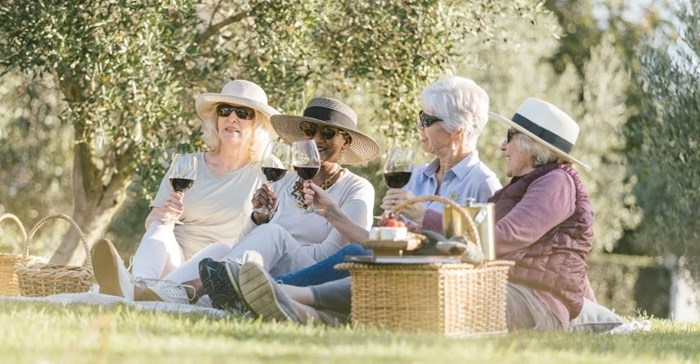Society’s move away from the extended family to the nuclear family, coupled with rampant urbanisation, has taken its toll on ageing communities the world over.

Source: Supplied.
A study conducted at the Aga Khan University - entitled Depression in the elderly: Does family system play a role? - observed that “societal urbanisation has promoted nucleation of family systems and a decrease in care and support for the elderly”. It went on to say that “the transition in family systems may have a detrimental effect on the physical and mental health of the elderly.”
The marginalisation of the elderly in western society is what drove the emergence of traditional old-aged homes, care, and rest homes. These facilities were medically oriented and institutional in nature, not far removed from mental asylums - places where older members of the family were sent to live out their days.
Often lonely and abandoned, with negligible comfort and little to live for, their physical health and mental wellbeing deteriorated, often leading to untimely death.
Fortunately, thanks to advances in modern medicine, today’s elders have a great deal more to look forward to.
“People over the age of 60 are still capable of living active, independent, and sociable lives,” says Cobus Bedeker, managing director of Evergreen Property Developments. “They are still very much the masters of their own destinies, and are looking for lifestyle options that focus on the enjoyment of their retirement years, rather than on ageing, ailing, and failing.”
Recognising the need for a different approach, property developers across South Africa are heeding the call, with estates geared towards the needs of retirees who are keen to enjoy their free time.
Modern retirement villages are built around the concept of hospitality rather than medical care, with lifestyle facilities that resemble upmarket hotels and resorts. Many offer gyms, indoor swimming pools, hairdressers, restaurants, libraries, cinemas, and sports facilities, along with organised social activities like walking and bird-watching groups, art classes, wine-tasting clubs, quiz nights, and the like.
“Rather than facing the isolation of living on their own, and adjusting to life beyond the family and the workplace, today’s retirees relish the idea of relocating to an established community of people with shared backgrounds and interests,” says Bedeker.
Addressing retirement-housing dilemmas
Lifestyle considerations aside, where to live for the remainder of one’s life, and where to invest one’s life savings, is a daunting decision that cannot be taken lightly. Property developers and owners need to be cognisant of the fears and concerns governing the purchase of a home late in life, and offer flexible payment terms and innovative products to allay the fears of the aged.
“In our experience of dealing with the retiree market, we found that many couples were either battling to reach consensus and commit, or were second-guessing themselves,” explains Bedeker. “We introduced initiatives like Friends of Evergreen, Try-Before-You-Buy, and Rent-to-Buy at our villages across the country so that prospective purchasers can visit and even trial-out a village before making a financial commitment.
“We also found that, once retirees decide to make the move, they want to move quickly – which poses a problem if they still need to sell the home they’re living in,” he continues. “This prompted the development of a concept called Move-in-tomorrow, which allows our clients to move into one of our villages before they have sold their home. We help them to move in, prepare their property for sale, and liaise with estate agents and prospective buyers on their behalf.”
Given that today’s retiree could live for as much as 30 years after stopping work, their single biggest fear is running out of money. This may have been why the Life Right has become a popular way of buying.
A Life Right allows the holder and his or her spouse to live in their home for the remainder of their lives, and lets them plan financially because levies are transparent and calculated up to two years in advance. Unlike in a freehold or sectional-title property, there are no special levies on a Life Right, and neither transfer duty nor Vat are payable.
The way in which people retire has changed significantly in recent years, and the archaic care-home stereotype has been relegated to history. Today, there is no reason not to look forward to moving into an environment that caters specifically to the needs of the elderly.
All the safeguards provided by old-age care homes remain in place – like physical security, health-, frail-, and dementia care – but with an added layer of comfort, convenience, and conviviality for those who may be elderly, but not yet ‘old’.


































